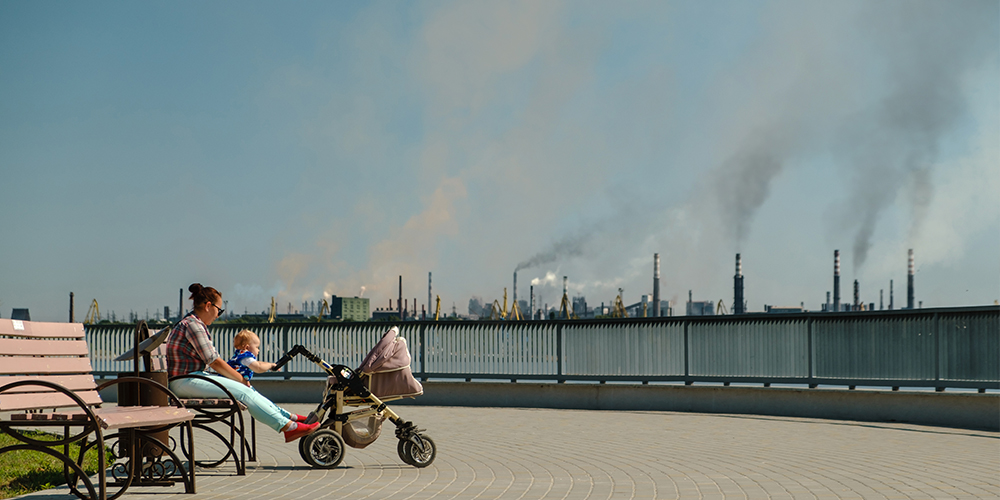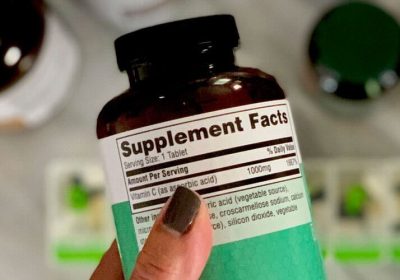What if true health was less about achieving perfect health, and more about building resilience? Could redefining health transform our lives and our health systems? And could 2025 provide an opportunity to shift our society’s preoccupation with the treatment of symptomatic disease towards creating resilience?
THE TOPLINE
- The WHO’s definition of health sets an unattainable goal of “complete well-being,” driving over-medicalization and pathologizing normal human experiences, leading to increased dependence on pharmaceuticals.
- By emphasizing individual responsibility for health, systemic issues like poverty, pollution, and inequities are overlooked, while healthcare focuses on treating symptoms rather than addressing root causes.
- This over-medicalized system benefits pharmaceutical companies through the expansion of treatable conditions, despite limited evidence supporting the effectiveness of many treatments, while lifestyle-based solutions are underutilized.
Imagine this: you’re feeling tired after a long week, overwhelmed by life’s challenges. You visit the doctor and describe your issues, and you leave with a prescription. Weeks pass, and now you’re managing side effects from that medication with another pill. What began as a fleeting feeling of exhaustion has spiraled into dependence on a string of drug-based treatments—none of which address the real root of your struggles.
This story is all too familiar in today’s world, where the slightest deviation from “normal” is treated as a problem to be fixed. We live in a society where medications have become the default solution, where every ache, emotion, or imperfection seems to demand intervention.
At the heart of this issue is the medicalization of society. But how did we get there? A large part of that answer lies how “health” has been defined since 1948. This period in history signifies the birth of Big Pharma, a massive industry, currently worth over $1.6 trillion, that has done little to dent our chronic disease epidemic. More than that, prescription medicines also happen to be the third leading cause of death in Western societies. In its 1948 definition that remains unchanged to this day, the World Health Organization (WHO) defines health as follows:
A state of complete physical, mental, and social well-being and not merely the absence of disease or infirmity.
With this definition, the WHO set an impossible standard—one that has fueled a culture of over-medicalization, polypharmacy, and misplaced priorities in healthcare.
Unrealistic Expectations of Health
First, the word “complete” sets an unattainable standard, implying that health is a perfect state. This has driven a culture where normal human experiences—such as stress, sadness, aging, or shyness—are pathologized. Under such conditions, any deviation from perfection can be labeled as a medical issue, requiring intervention with drugs.

This approach has fostered dependence on medical solutions, creating a society where feeling anything less than perfect prompts visits to the doctor, followed by prescriptions. The numbers are staggering: 66 percent of adults use prescription drugs. Polypharmacy rates are on the rise, with over 40% of adults aged 65 and older reporting the use of five or more prescription medications in 2017-2020.
And it’s not just adults: a recent study found that an increasing number of children and adolescents are being prescribed multiple psychiatric drugs simultaneously. The almost universally accepted, yet flawed, view of what “health” is has led us to become dependent on pharmaceutical solutions. As we’ve seen elsewhere, prescription drugs are expensive, dangerous, and often ineffective.
Ignoring the Role of Environmental and Social Determinants
While good clinical care is important, it’s only one piece of the puzzle when it comes to how healthy we are, how long we live, and how long we live without major disability.
For example, a 2016 study reviewing County Health Rankings, found that clinical care by doctors and hospitals accounted for only 16% of our health outcomes.
The same study found the biggest factor affecting our health, accounting for 47% of health outcomes, relates to things that most doctors barely take into account: our socio-economic status (yes, our monetary wealth) and social factors. Next comes our own behaviors (34%), such as what, how, and when we eat, how much we move or exercise, whether we smoke or drink, and how we manage stress. It was found that the environment accounts for just 3% of outcomes, but we can’t help feeling that this would have been hard to separate from any of the above factors so is likely understated in the study.
All of this points in one direction: our ability to exercise our health freedom and self-care in ways that we choose is a prerequisite for people to become healthy and resilient. Since we can control our own behaviors, focusing on self-care is a powerful way to improve our health and live longer, healthier lives. This means making healthy choices about our lifestyle and taking steps to build our resilience and prevent illness.
The WHO’s definition places the responsibility for achieving “complete well-being” on individuals, often overlooking systemic factors such as environmental influences, socioeconomic status, and public health infrastructure that undermine our ability to optimize health.
For example, poverty, food deserts, and lack of access to safe recreational spaces significantly impact health outcomes. People living in food deserts, for example, often rely on highly processed, nutrient-poor options, increasing their risk of obesity and diabetes.

Further, individuals in stressful work environments or living in polluted areas may face challenges that no amount of medication can resolve. For instance, individuals living near highways are disproportionately exposed to air pollution, including particulate matter and vehicle emissions, which are linked to asthma, cardiovascular diseases, and other chronic illnesses; communities located near industrial factories are often exposed to harmful substances like PFAS (“forever chemicals”) in their water supply or food, leading to a host of negative health outcomes.
Rather than addressing these root causes, the healthcare system prioritizes treating symptoms through pharmaceuticals. This focus on individual responsibility deflects attention from structural solutions, perpetuating health inequities.
Pharma-ganda
The reason the WHO definition exists unchanged since its inception in 1948 is because it provides such enormous benefits for the pharmaceutical industry. Big Pharma profits from the constant expansion of treatable “conditions” while lifestyle- and nutritionally-based, non-pharmacological solutions remain under-funded, under-researched and, accordingly, underutilized. In fact, government agencies like the FDA make sure of it. Because of the crony capitalist relationships we’ve elaborated elsewhere, the FDA serves the interests of pharmaceutical companies and works to delegitimize and attack natural medicines that don’t make millions for anyone but are effective at maintaining and optimizing health.
With such vast profits on the line, there are powerful incentives to maintain the over-medicalized status quo, even when we know it isn’t working. For example, polypharmacy has become common, yet evidence for the effectiveness of many drugs and treatments remains limited. An analysis of Cochrane reviews found that only 9.9% of assessed treatments were supported by high-quality evidence. Surgical and medical procedures often lack robust evidence but remain entrenched due to financial incentives and the resistance to change. Doctors and medical associations often stand to benefit from the same over-medicalized arrangements.
Fix It When It’s Broken!
If we want to transform healthcare, we need to start with a revitalized vision of what “health” even means. Toward that end, ANH founder Rob Verkerk, PhD reviewed work by other critics of the WHO definition, in particular that of Machteld Huber and a group of other Dutch, US, and Canadian researchers publishing in the BMJ in 2011, Associate Professor Alan Card from the San Diego State University, and two Canadian public health scientists, Professor Alejandro Jadad and postdoc fellow Laura O’Grady in a BMJ editorial in 2008.

With this, and his own multidisciplinary scientific background, Dr. Verkerk has proposed the following definition of health:
Health is the experience of physical, physiological, and psychological well-being and resilience. It includes the ability to adapt and self-manage in the face of physical, social, emotional, and environmental challenges.
By focusing on resilience and the ability to adapt and self-manage in the face of challenges, Dr. Verkerk reframes health as a dynamic process rather than an unattainable state of perfection. This perspective normalizes the ups and downs of life, reducing the tendency to pathologize everyday experiences like stress or fatigue and promotes empowerment over dependency on medical interventions.
Unlike the WHO definition, Dr. Verkerk’s definition explicitly accounts for the influence of environmental and social factors, such as air pollution, water contamination, electrosmog, and life’s demands and stresses. It stresses that our state of health is ultimately an experience, while also recognizing that health is dynamic and that health and disorders or disease exist in a continuum. The definition also acknowledges that health is shaped by both internal and external conditions, while emphasizing individual agency in building resilience through behavioral and lifestyle choices. By balancing individual responsibility with a recognition of systemic challenges, Dr. Verkerk’s definition provides a holistic, inclusive, empowering, and attainable vision of health that better reflects the complexities of modern life and our relationship with social systems and our environment.
Conclusion
Imagine a world where health is defined not by the absence of disease, discomfort, pain or some kind of dysfunction, but rather by the presence of vitality across multiple body systems, as well as with the familial and social systems within which individuals operate. Where communities work together to reduce inequities and create environments that nurture well-being. It’s a world where individuals are equipped to manage stress, adapt to challenges, and thrive—not because they rely on a pill for every problem, but because they are empowered to take charge of their health.
This is the future we can build together, one rooted in balance, resilience, and a holistic understanding of health. It’s not an easy path, but it’s the one that leads to true wellness for individuals, communities, and generations to come. And we think that this process will be accelerated if we consign the WHO definition of health to the waste basket.
Let us know your thoughts in the comments.
If there are people in your network who you think would benefit from keeping their finger on the Pulse of Health Freedom, please share this link so they can sign up for our FREE weekly alerts via our Action Center.




Thanks for this discussion, and especially for quoting both definitions of ‘health’:
WHO: ‘A state of complete physical, mental, and social well-being and not merely the absence of disease or infirmity.’
Verkerk: ‘The experience of physical, physiological, and psychological well-being and resilience. It includes the ability to adapt and self-manage in the face of physical, social, emotional, and environmental challenges.’
These definitions are both good, albeit Verkerk’s is a bit better. They certainly do not conflict. They both focus on ‘well-being’ but Verkerk’s usefully adds also a specific focus on resilience as a component of ‘well-being’. Both definitions allow for ‘well-being’ to be a dynamic process over time, not just an attribute of a single instant.
It’s misleading to blame the WHO definition for an unhealthy focus on pharmaceuticals. The Verkerk definition could just as easily be twisted into being used to excuse that focus. Pharma shills can always hype their products as aids to ‘resilience’ just as readily as they now hype them as aids to ‘complete well being’.
If all is interconnected than how can anyone feel well with these perpetual wars, genocides, bombings of innocent children/people. Daily lowering our frequencies on top of Chemtrailing/Geoengineering, 5 G/6 G, Processed foods and a diminishing cohesion in all societies.